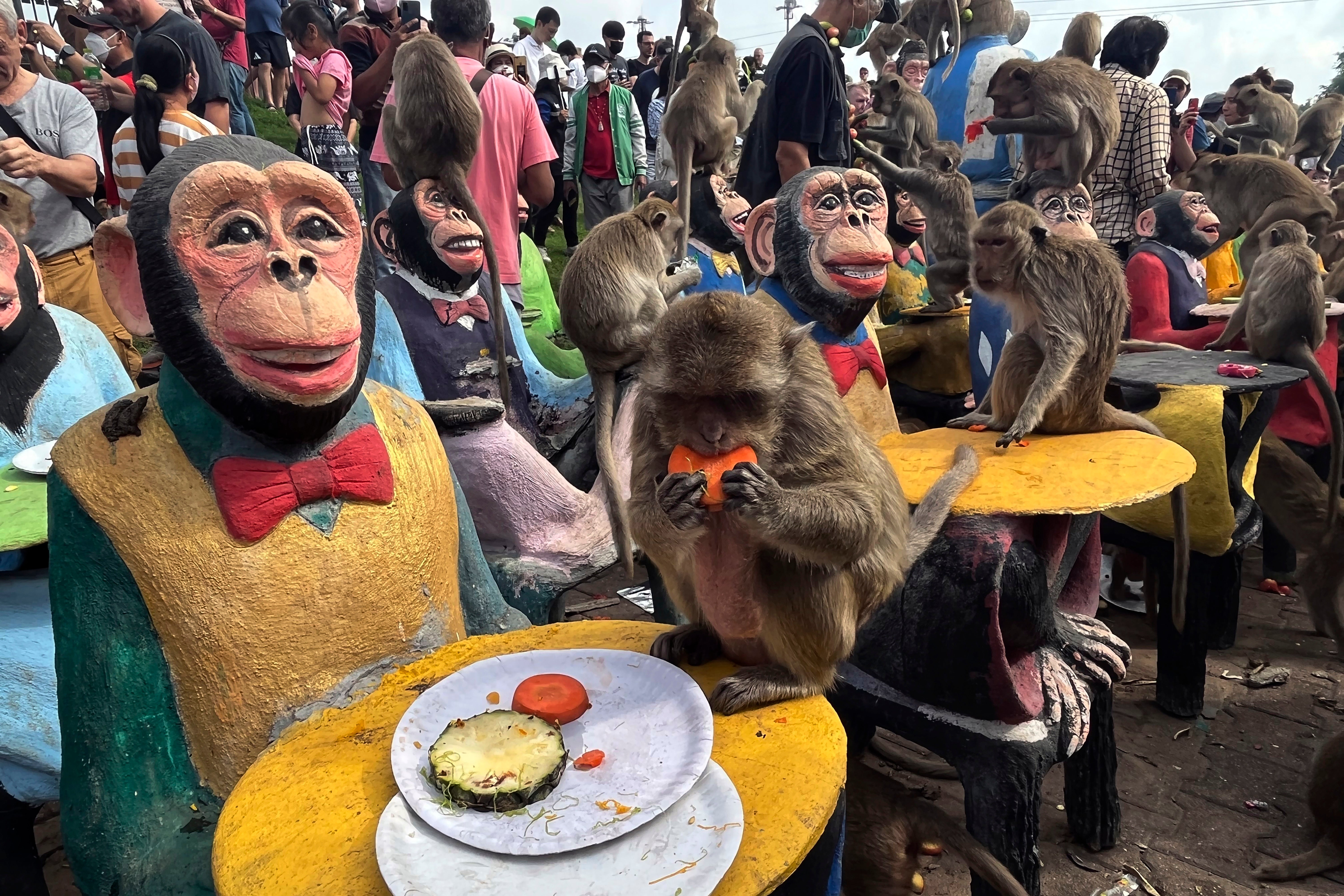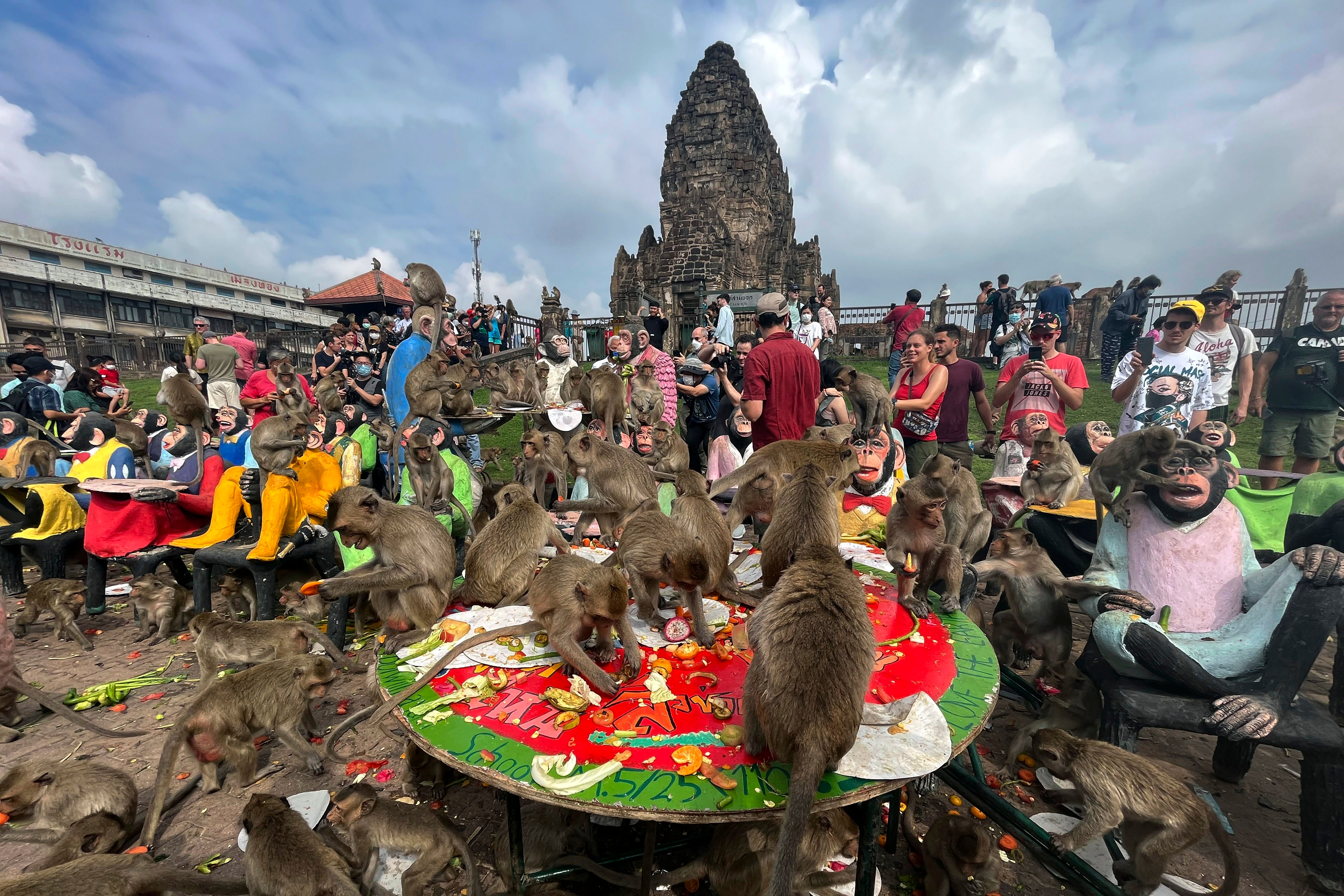After years at war a city has finally drawn up plans to end its monkey mayhem
In March, a woman dislocated her knee after a monkey pulled her off her feet in an effort to grab food

Your support helps us to tell the story
From reproductive rights to climate change to Big Tech, The Independent is on the ground when the story is developing. Whether it's investigating the financials of Elon Musk's pro-Trump PAC or producing our latest documentary, 'The A Word', which shines a light on the American women fighting for reproductive rights, we know how important it is to parse out the facts from the messaging.
At such a critical moment in US history, we need reporters on the ground. Your donation allows us to keep sending journalists to speak to both sides of the story.
The Independent is trusted by Americans across the entire political spectrum. And unlike many other quality news outlets, we choose not to lock Americans out of our reporting and analysis with paywalls. We believe quality journalism should be available to everyone, paid for by those who can afford it.
Your support makes all the difference.After years of mayhem, Thai officials have made plans to create peace between monkeys and humans.
The macaques that roam Lopburi are a symbol of local culture and a major tourist draw. But after years of dangerous encounters with residents and visitors and several failed attempts to bring peace with population controls, local people and businesses have had enough.
The monkeys frequently try to snatch food from humans, sometimes resulting in tussles that can leave people with scratches and other injuries.
But outrage grew in March when a woman dislocated her knee after a monkey pulled her off her feet in an effort to grab food, and another man was knocked off a motorcycle by a hungry monkey.
Authorities hope to round up some 2,500 urban monkeys and place them in massive enclosures, said Athapol Charoenshunsa, the director general of the Department of National Parks, Wildlife and Plant Conservation. They'll work with wildlife experts to find a way for a limited number of monkeys to stay at liberty in the city, he added.
“I don’t want humans to have to hurt monkeys, and I don’t want monkeys to have to hurt humans,” he told reporters during a news conference in Bangkok.
An official monkey-catching campaign was launched last week, prioritising more aggressive alpha males. It has caught 37 monkeys so far, most of whom have been placed under the care of wildlife authorities in the neighbouring province of Saraburi, while others were sent to the Lopburi zoo.

Officials said they plan to capture the rest of the monkeys once the enclosures are complete, especially those in the residential areas. Separate cages will be prepared for different troops of monkeys to prevent them from fighting.
Athapol said he expects the first phase of the operation to start within weeks, and believes the huge cages will be able to contain thousands of them and “will solve the problem very quickly.”
The monkeys are a symbol of the province, about 140km (90 miles) north of Bangkok, where the ancient Three Pagodas temple celebrates an annual “Monkey Buffet” festival, and they're commonly seen throughout the city. Macaques are classified as a protected species under Thailand’s wildlife conservation law.
Athapol said people shouldn't see monkeys as villains, saying that the authorities might have not been efficient enough in their work to control the simian population, leading to clashes between the animals and human residents.
People also need to adapt to the city’s monkeys, said Phadej Laithong, director of the Wildlife Conservation Office, explaining that a lack of natural food sources prompts the animals to find food wherever they can, including from humans.
Athapol said they are also working in other areas of Thailand facing problems with monkeys, such as Prajuab Kiri Khan and Phetchaburi. He said 52 of the country’s 77 provinces report frequent problems from monkeys.
Previous control measures have fallen short. Between 2014-2023, the wildlife authorities neutered about 2,600 Lopburi monkeys.